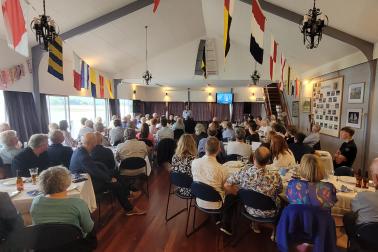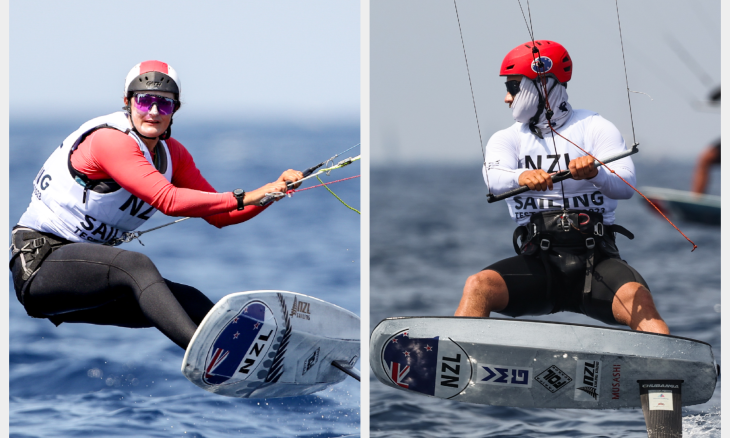There is no better time to future-proof your club than right now.
That was the key message from Yachting New Zealand chief executive David Abercrombie to over 70 yacht club representatives during a recent webinar on imminent changes that will impact the way these clubs operate.
Abercrombie provided an update on changes to the Incorporated Societies Act 2022 and Sport New Zealand's impending Integrity Sport and Recreation Commission, as well as tools and resources to ensure clubs remain compliant and resilient amid evolving legal and ethical standards.
The full webinar, with links to helpful resources and templates, can be accessed here.
The new act, which passed into law in April 2022, requires clubs to lodge their re-registration application by March 31, 2026. It is expected to impact around 100 national sports organisations (NSOs), over 600 regional sports organisations, and more than 6,000 clubs around the country, including many of Yachting New Zealand's 108 affiliated clubs.
It intends to make governance functions more robust by aligning director duties more closely with those in the Companies Act and overhauling constitutions that may no longer be fit for purpose, Abercrombie said.
Sport New Zealand is recommending a phased re-registration process—starting with national bodies, followed by regions and clubs.
"Many of you were involved at our annual general meeting last year, when you agreed to adopt Yachting New Zealand's new constitution," Abercrombie said. "We started this process early to understand how we could help clubs and anticipate changes related to dispute resolution and integrity measures from Sport New Zealand.
"Updating your constitution is a valuable exercise, as many organisations have constitutions that are rarely reviewed. It's essential to understand your governance structure and operational rules to ensure they serve your organisation effectively."
Key changes include a reduction in the minimum number of members required for an incorporated society or club, the collection of consent from each new member at the time of joining, the appointment of at least one person to be contactable by the registrar, and a minimum of three officers on the club committee or board.
There are also new financial reporting requirements relative to a club's total expenses over the preceding two financial years.
The Integrity Sport and Recreation Commission will commence operation on July 1, tasked with ensuring safe and fair practices in sports and recreation.
"The new integrity code, which is seen as being best practice, will help protect participants from discrimination, harm, and other threats to integrity. It will have extensive responsibilities and powers," Abercrombie said. "Although the full details are still forthcoming, clubs should prepare for six new components of the integrity code."
Sport New Zealand is expected to provide a detailed outline of the new integrity code on June 20. This update will cover the commission's purpose and legislative role, who the key people are, the commission’s various functions and how they can be accessed, and the commission's processes – what happens when there is a complaint or investigation.
"Implementing the Integrity Code will be an opportunity for organisations to help protect participants from harm and reduce the risk of serious integrity issues occurring. Adoption of the Integrity Code by an NSO is voluntary - but if the NSO adopts the Integrity Code, its provisions become binding not only on the NSO but also on all its members."
The Yachting New Zealand board will consult with clubs on the adoption of the code.
"The commission's structure ensures that complaints are managed appropriately at every level. This system aims to support clubs while maintaining high standards of integrity and fairness," Abercrombie said.
"We are here to support you every step of the way. Embracing these changes is not just about compliance; it's about futureproofing our yacht clubs to thrive in a dynamic legal and social environment."
The full webinar, with links to helpful resources and templates, can be accessed here.





